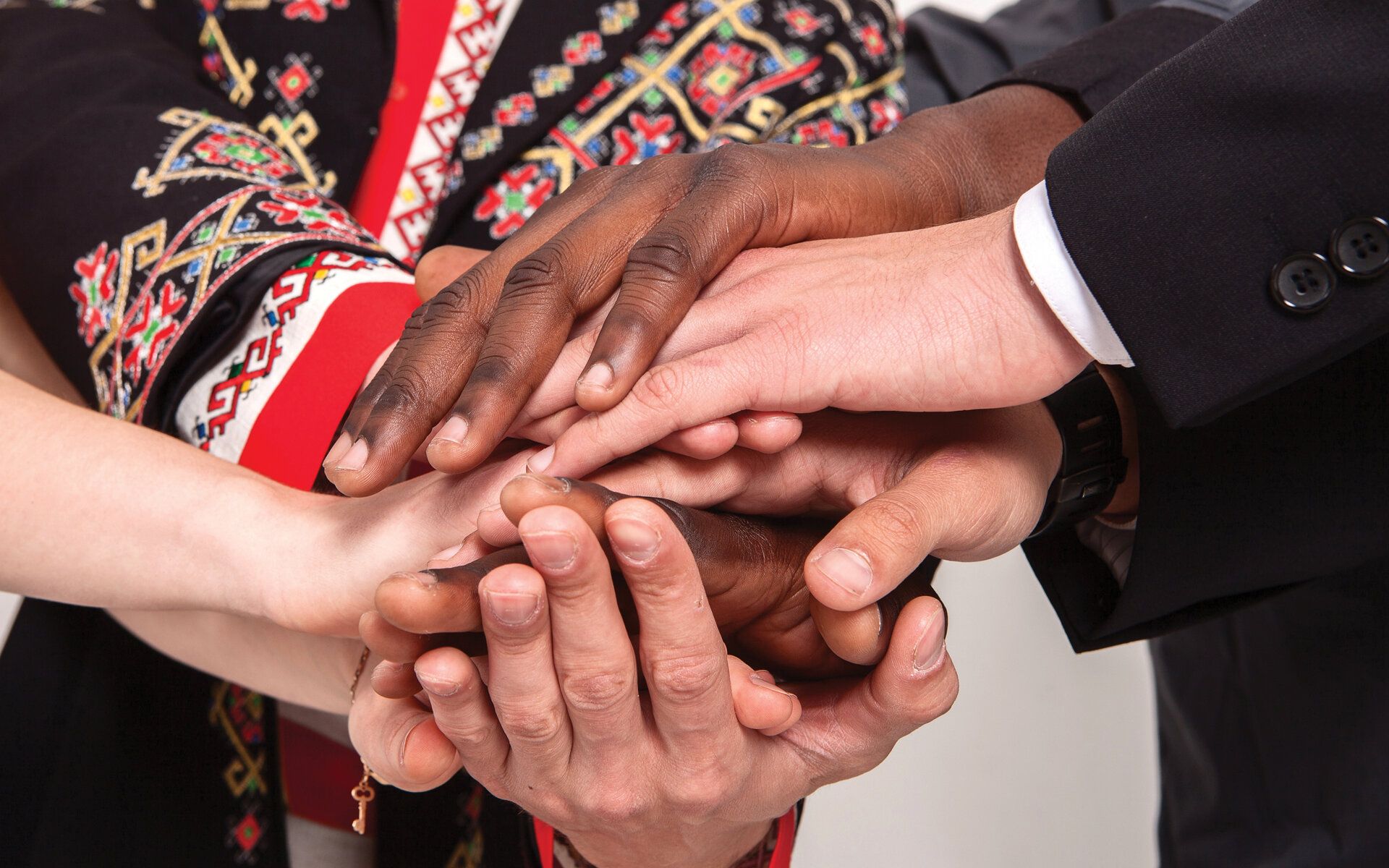Pluralism

In This Article
-
Pluralism, though it is a modern concept, did exist as a social reality in the past.
-
It is not possible to reach absolute consensus in any society. It did not happen even among the companions of the Prophet, that elite group of people in the sight of God.
-
Believers have seen differences as a sign of Divine mercy, encouraging them to welcome differences with respect. Thus, they have been able to maintain integrity of their communities.
“Pluralism” is a concept more pronounced in modern times than at any other time in history. Yet, it did exist in the past—maybe not as a word but as a reality of social existence, especially in the early days of Islam. Believers back then welcomed different perspectives, ideas, and feelings, and approached others with understanding.
We need to note that it is not possible to reach absolute consensus in any society. It did not happen even among the companions of the Prophet, that elite group of people in the sight of God. Many of these companions thought differently about different matters; each of them had their own way of doing things. Take a look at the lives of Umar and Abu Dharr, or Abu Bakr and Bilal—they were so different from each other, although all of them were nourished from the same sweet source of water.
In the generations that followed, Muslim thought systems and lifestyles were established to a great extent on the foundations of the Scripture, the Prophetic tradition (sunnah), the consensus of scholars (ijma), and the principle of analogy (qiyas), in addition to secondary dynamics like custom, social benefit, and juristic discretion (istihsan). However, although believers designed their lives on these fundamental sources of knowledge, they still developed different solutions to the problems they encountered.
The pioneer scholars of Islam—like Imam Malik, Imam Shafii, and Ahmad ibn Hanbal—often offered drastically different rulings, even though they were teachers and students to each other. Imam Muhammad and Imam Abu Yusuf were students of Abu Hanifa, but many of their rulings contrasted with those of their teacher. This is mainly a human condition, for every individual is different in the way they approach, understand, and interpret events. These leading jurists centered their lives around the scripture and the Prophetic practice; given the huge differences between them, one can only imagine how big the gap could be among lay people.
Believers have seen differences as a sign of Divine mercy, encouraging them to welcome differences with respect. Thus, they have been able to maintain integrity of their communities.
Developing a culture of coexistence
Striving to live with others in peace and harmony, despite major differences in lifestyles and beliefs, is as rewarding as worship. We usually have a negative reaction to what appears to be different. Subduing such negative feelings requires serious effort and willpower. The Prophetic tradition prescribes believers to live as a community, and not in isolation.
Establishing integrity and living in harmony as a pluralistic society is possible when members of the community learn to accept everyone as they are and approach differences with understanding. Approaching others with such a pluralist point of view is surely a manifestation of Divine mercy. The opposite of this is tyranny, or a form of despotism that rules with pressure and oppression and imposes a singular lifestyle on people. Such a rule threatens basic rights and freedoms; it surely crushes human potential and isolates people from the rest of the world.
Believers have to interact with different cultures and nations, lest they imprison themselves in a small space and remain outdated. On the one hand, they need to introduce their own system of values to others; on the other hand, they need to learn and benefit from others.
Conflict, however, exists even among communities that share the same beliefs and cultural background. Given that this is a fact, conflict is more likely among communities that have fewer commonalities. To be able to establish a society with integrity, it is important to realize that we need to first adopt this culture of peaceful coexistence in our own lives and then seek opportunities to practice it. Principles like meeting with others on the common denominator of being human, coming together around things that we all agree on, looking for other possibilities that can build bridges across groups, and accepting people in their own positions are necessary for building a pluralistic society.
Some believers are concerned that pluralism may lead to compromise and erosion in certain religious values. This is why they are not sure how to engage with it, and some even go as far as to adopt antagonistic feelings about the “other.” These believers need to understand that they will not achieve anything by declaring war against members of other cultures and faith traditions. Believers should be in communication with others by holding them as precious as God holds humankind.
Seeing differences as richness
Accepting differences as a reality and establishing a pluralistic society based on this premise does not mean that we should not show our opposition against certain actions and thoughts. Living with others who have different worldviews does not mean that we should agree and approve of all of their thoughts. This goes both ways—they can oppose our thoughts, too. What matters is that these disagreements and oppositions should not lead to destructive clashes. To be able to maintain societal integrity and harmony, it may sometimes be necessary to leave behind certain points of disagreement and bring to the front points that we agree upon.
Every human deserves respect, simply for being human. Differences are a reality of being human. Accepting these premises, we need to act with realism and reason and do what needs to be done in a globalized world. This should not require anyone to forsake one’s own values. Believers should be able to practice their faith without any hesitation, yet do so without imposing their values on anyone else. It is important to learn to live together while accepting our differences as an enriching component of our society.
In fact, encountering people from other traditions has often been an instrument of reinforcement. More than we assume, people usually show respect when it is time for you to pray and ask their permission to move to a quiet place. Mutual relations grow stronger when believers are confident and transparent in the way they practice their faith. Any provocative act, roughness, and radicalism should be avoided.
Some believers oppose pluralism, for they presuppose it is accepting all kinds of extreme perversity and immorality. As a matter of fact, some people consider it their democratic right to live as they like without observing any moral standard. What believers adopt and approve as right are evident. Yet, unless our rights or the rights of others and the public are violated, our disapproval of something does not necessitate us to declare war upon those who live without any moral standard. Prophet Muhammad, peace be upon him, lived with Meccan pagans, Medinan hypocrites, and Jewish tribes for a very long time, and he showed us how to live with differences in one community.
Does this mean we should not do anything against what we believe is wrong?
What we are pointing out here is not that we should be silent and do nothing. Believers need to be exemplary individuals, before anything else, and then voice their concerns according to the circumstances. Encouraging people to do right thing and warning them against the wrong is a major duty of believers, given that they do it by keeping people’s feelings in mind and without causing negative reaction. Unnecessarily crude or rough behavior in going against what we believe as wrong may prevent other good work that may restore our society in the future.
It is undeniable that there is an antipathy against Muslims in the Western world. Similarly, some Muslims have feelings of animosity against the West. Both of these harm a culture of peaceful coexistence. Muslims, however, have to face themselves before they accuse others. Because it is the failure of Muslims in the first place that they have not done enough so others could discover true Islam.









